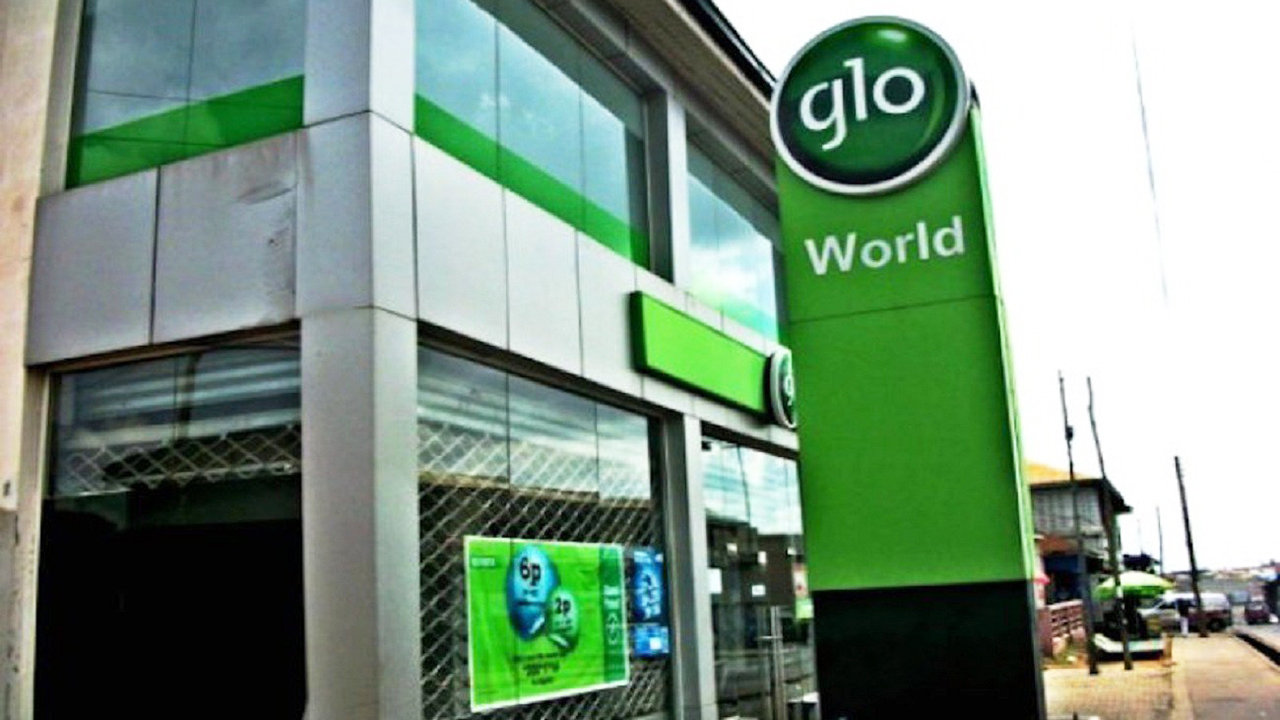Business
CBA Foundation Launches Social Enterprise Initiative to Take Intervention Among Underprivileged Widows to Next Level

If indications from two separate but related events that were held last December are anything to go by, then one of Nigeria’s most vulnerable groups may be on the verge of experiencing better times. The events, hosted in two separate states/regions and separated by a 20-day interval, held at a time when self-splurging by many young Nigerians was at octane levels, and saw young men and women behind an NGO that caters to the welfare of underprivileged widows and their vulnerable children, passionately putting the widows’ needs above their wants.
The NGO, CBA Foundation, its dedicated and passionate staff, supporters and donors came out in their numbers on two dedicated days in December to give widows in selected communities in Lagos and Anambra a treat during the festive season. The Lagos outreach benefitted, in a unique way, widows in six communities in Ibeju-Lekki, namely: Badore, Iberekodo, Museyo, Magbon Alade, Okunola Ilado and Magbon Iga.
CBA Foundation seized the opportunity of the outreach to launch a new initiative it tagged Social Enterprise Initiative. The Initiative, which is aimed at ensuring the long-term sustainability of all efforts to protect and promote the welfare of widows as well as their children, is to cater to the financial, mental and physical health needs of beneficiaries. The Initiative is to provide comprehensive support, including health interventions, skill acquisition, business set-up, food and drinks, clothes and shoes, and general support for all affected widows.
The Founder/CEO of CBA Foundation, Mrs Chinwe Bode-Akinwande explained the reason for the Foundation’s shift to the new Initiative: “We have been doing outreaches and it has been non-stop, but the essence of this Social Enterprise Initiative is for the widows to have something that will sustain them even for a longer period, something that will give them hope, knowing that they have a sustainable source of livelihood and activities that remind them that they need to keep going.”
Continuing, she reveals when the idea for the new initiative began: “When the lockdown came last year [2020], we realised that there was a need again to have something sustainable for these women. With the Social Enterprise Initiative, we identify the skills they need to possess, and what they are passionate about, we also empower them with the necessary training and then set them up with all they need for the business. At the end of the day, they won’t have to wait daily for the CBA Foundation to give them food or clothing.”
Mrs Bode-Akinwande noted that the Initiative had been informed by a rigorous analysis of the data in their database, gathered over the years on widows whom they have reached out to and the support they have been receiving from both individual and corporate donors. She said that they had dimensioned all the critical issues from widows with critical needs, where the Foundation needed to begin its interventions, to widows who needed to be set up in business and to several widows’ children who needed to be reinstated back in school.
She also remarked that plans were underway at the Foundation to take the skills acquisition training further, beginning with adire-making (tie and dye). She announced that the Foundation would have a line of products that would be its adire pattern, displaying its unique signature. When sold, a percentage of the profit would be ploughed back into the Foundation as a constant stream of income.
The idea, the Foundation CEO stressed, would inspire the widows who show a keen interest in adire-making as they would be involved and exposed to its value chain which is essential to optimising their execution after their training. So, the adire-making training followed with tutorials on the step-by-step processes involved in it, materials needed and how to identify them, necessary safety precautions, various tie and dye techniques, packaging and distribution and how to make a living from adire-making.
For widows with impaired vision at the event, they were able to have free consultations with an ophthalmologist, get free eye tests and free reading glasses, courtesy of a partnership between FirstBank and Vision Spring. What followed when beneficiaries had the free reading glasses fitted and could see clearly were scenes similar to ones where people had experienced supernatural miracles. The ecstatic joy was palpable.
Take 59-year-old Hassanat Oyewunmi, for example. Tears of joy rolled freely from her eyes as she remarked that her farsightedness challenge had been addressed. She confessed excitedly that she felt “better, much better now with the glasses, and I can even see everyone clearly. It is good to know that we are not forgotten.”
Olabode Sadiat, 62, could not contain her joy as she wore her glasses and pointed in the distance, while indicating that she could see everything in her line of sight. She had suffered from a blurry vision that made reading her Bible difficult. “Nothing is more painful than not being able to read your Bible,” she had noted following the medical intervention.
The widows also received food, drinks, clothing and other materials that were distributed during the outreach. They were also given a final charge by Mrs Bode-Akinwande in which she reminded them that they were not alone and could always count on the support of the CBA Foundation.
In all, 165 widows across the six communities of Ibeju-Lekki benefitted on 4th December 2021 when the Lagos outreach was held. The Anambra outreach, on the other hand, benefitted 75 widows from four communities in the Nnewi area of the state. The outreach in Anambra was held on 24th December 2021.
Food items and financial empowerment constituted the bulk of the support CBA Foundation gave the Anambra widows to celebrate the festive season. The Anambra initiative has enjoyed tremendous support from a donor who has been consistent over the past four years. The Founder of the Foundation expressed gratitude to the donor while remarking that the outreach was being embarked on “at this festive season, so the widows can at least have something to eat and share with their loved ones.”
She continues: “We give hope to the hopeless. We are driven to support underprivileged widows to have a positive outlook on life despite the problems they experience by losing their loved one, mostly the breadwinner of the family.”
Both Lagos and Anambra outreaches were in some sense CBA Foundation’s way of giving underprivileged widows a “December to Remember” treat. Of course, that treat would at best be modest compared to how people who were not in any known vulnerable categories took care of themselves and themselves alone. Even with the best of intentions, CBA Foundation could only work with donations received from donors and supporters at a time of the year when most (young) people were dedicating more resources to the self-splurging that December has come to represent.
While it may not be in one’s place to dictate to others how they should spend the money they have worked so hard to make, one cannot help but try to point them to ways they could better dispense their hard-earned cash that would be in their enlightened self-interest. Or what sense is there in spending on oneself so lavishly and ostentatiously as though spending was going to go out of fashion at any moment only to provoke the have-nots to make one the target of their misdirected anger in a society that is largely dysfunctional?
A similar question should be addressed to the government and public officials: What sense is there in expending huge public resources on projects that have no direct bearing on the welfare of vulnerable groups when it only widens the gap between the haves (including public officials) and have-nots and exacerbates the conditions that heighten security concerns among the haves? At what point will the government, public officials and the privileged class start acting in their enlightened self-interest by committing genuine efforts to narrow the gap between those who have and those who can only wish?
It is high time public officials and the privileged began building strong coalitions and partnerships with groups and organisations that have been working to protect and support as well as advocate for the vulnerable for years now. They must begin to key into and support the organisations’ laudable initiatives that show great potential in helping to narrow the frightening gap.
CBA Foundation’s Social Enterprise Initiative represents one of such laudable initiatives. It is a well-thought-out initiative capable of transforming the existing arrangement for care and support of vulnerable groups such as underprivileged widows and their children and taking their welfare to the next level. The Government, individuals as well as corporate organisations must join hands with the Foundation if the Initiative is to have any chance of success.
Through its avowed commitment to “touching lives, giving hope…” not in mere words and empty promises but genuine and visible action on the ground (see ample examples captured on its website: www.cbafoundation.org), CBA Foundation has already demonstrated its readiness to do more with more support. It has shown that it is living true to its #CareIsAction DNA and can thus be trusted with more support. The Social Enterprise Initiative, therefore, enlists all to send an email at: cbafoundationng@gmail.com to partner with the Foundation in the drive to take the welfare of underprivileged widows to the next level where its long-term sustainability is guaranteed.
Business
FirstBank Partners Verve to Issue Free Debit Cards in Nationwide Promo

First Bank of Nigeria Limited (FirstBank), Nigeria’s premier and leading financial inclusion services provider, has announced the launch of the Verve Flash Promo, a special initiative rewarding customers with free Verve cards.
The campaign, which commenced on 6 October 2025, and will run until 30 January 2026, is exclusively targeted at FirstBank customers whose ATM cards have expired.
The free cards will be issued daily to 131 customers on a first-come, first-served basis across the Bank’s branches, nationwide. FirstBank’s unwavering commitment to convenience, accessibility, and customer satisfaction.
Speaking on the rewards to FirstBank customers, Chuma Ezirim, the Group Executive, e-Business and Retail Products at FirstBank, said: “The Verve Flash Promo is not just about rewarding customers with free verve debit cards; it is about celebrating our legacy of 131 years of trust, resilience, and innovation in the Nigerian financial services industry. At FirstBank, we remain committed to providing customer-centric solutions that enable secure, seamless, and convenient payment experiences. Partnering with Verve International on these initiatives, including the Verve Good Life promo, underscores our shared vision of deepening financial inclusion while rewarding our loyal customers for their continuous patronage.”
Also commenting, Vincent Ogbunude, Managing Director, Verve International, noted:
“Through strategic collaborations like this with FirstBank, we continue to demonstrate Verve’s commitment to enhancing access to seamless payment solutions for every Nigerian. The Verve Flash Promo not only rewards loyal customers but also reinforces our vision of making everyday transactions more rewarding, secure, and convenient. As we extend the Good Life Promo, we remain steadfast in our goal of deepening financial inclusion while delivering real value to Verve cardholders across the country.”
Meanwhile, the ongoing Verve Good Life promo, designed to reward Verve debit card holders for using their cards at specific merchant points, has been extended to 30 November 2025.
During the period, Verve Card holders enjoy 10% cashback at The Place Restaurant, Quickteller, Buypower, Filmhouse, AlliExpress, Addide Supermarkets, and Chowdeck app every Thursday to Sunday.
Verve cardholders can now enjoy a 10% cashback on the Google Play Store any day of the week throughout the Good Life Promo, which runs until 30 November 2025. Moreso, every transaction made with a Verve card whether on ATMs, POS terminals, or online platforms automatically earns customers a chance to win up to ₦1,000,000.
Business
Glo Enhances Data Bundles, Offers More Data at No Extra Cost

Nigeria’s leading telecommunications company, Globacom, has announced enhancement of its data bundles to give subscribers more data volume at the same affordable prices.
The upgrade reinforces the company’s commitment to providing superior value and exceptional customer satisfaction.
The upgraded Glo Data Bundles are enhanced versions of the existing daily, weekly, and monthly plans, giving subscribers more data at no additional cost.
These improvements offer users greater freedom and convenience to enjoy their favourite online activities from streaming and gaming to social media, video calls, and more.
For daily users, the ₦100 plan has been upgraded from 105MB to 125MB, giving light internet users even more data to browse, chat, and stream short videos conveniently.
The weekly bundles have also received notable boosts, such as the ₦1,500 plan, which now offers 6GB instead of 5.9GB, enabling subscribers to stay connected longer.
Heavy data consumers will also enjoy remarkable value on the monthly plans. The ₦2,000 bundle now gives 6.25GB, while the ₦10,000 package has been enhanced from 38GB to 42GB, allowing users to do more from video streaming and large file downloads to remote work and virtual meetings.
Students are not left out, as the Campus Booster Plan has been upgraded with higher data allowances, ensuring seamless access to academic resources and social networks while on campus.
Globacom noted that the revised bundles are available to all Glo customers prepaid, postpaid, and hybrid and can be activated by dialing *312#, using the Glo Café app (available on Android and iOS), or visiting hsi.glo.com.
The company added that subscribers can use, share, or gift data through *312# or the Glo Café app. Customers will also continue to receive data usage alerts at 75% and 100% consumption levels to help monitor usage effectively.
Unused data is automatically rolled over upon renewal before expiry or when a new plan is purchased within the grace period (ranging from one to seven days, depending on the plan).
Globacom reaffirmed its commitment to empowering Nigerians with reliable and affordable data access, urging customers to take advantage of the revised data bundles that combine affordability, quality, and more browsing power ensuring every Glo subscriber enjoys more data without paying more.
Business
Maiden Flight to Heathrow Airport: Fidelity Bank Hails Air Peace

Fidelity Bank Plc has congratulated Air Peace on the successful launch of its maiden direct flight from Lagos to London Heathrow, describing the milestone as a significant achievement for Nigeria’s aviation sector and a testament to the power of indigenous partnerships.
The commendation was delivered by Dr. Nneka Onyeali-Ikpe, managing director of Fidelity Bank, during a special event held in Lagos to celebrate the airline’s expansion into the European market.
“This is not just a win for Air Peace, but a win for Nigeria,” Onyeali-Ikpe said. “It reflects the strength of home-grown businesses and the impact of strategic financial support in enabling national champions to thrive on the global stage.”
Nigeria CommunicationsWeek reports that Fidelity Bank has played a pivotal role in Air Peace’s growth, providing early financial backing and advisory services that helped the airline become the largest carrier in West Africa. The bank continues to support Air Peace through payment processing and other financial services
The launch of the London route marks a new chapter for Air Peace, which now joins a select group of African airlines operating direct flights to Heathrow.
The development is expected to boost tourism, trade, and connectivity between Nigeria and the United Kingdom.
Speaking at the event, Allen Onyema, Chairman of Air Peace, expressed gratitude to Fidelity Bank for its unwavering support and reaffirmed the airline’s commitment to excellence and service.
“This partnership has been instrumental in our journey,” Onyema said. “We are proud to fly the Nigerian flag across international skies.”
Industry stakeholders present at the event praised the collaboration between the two companies as a model for sustainable business growth and national development.






